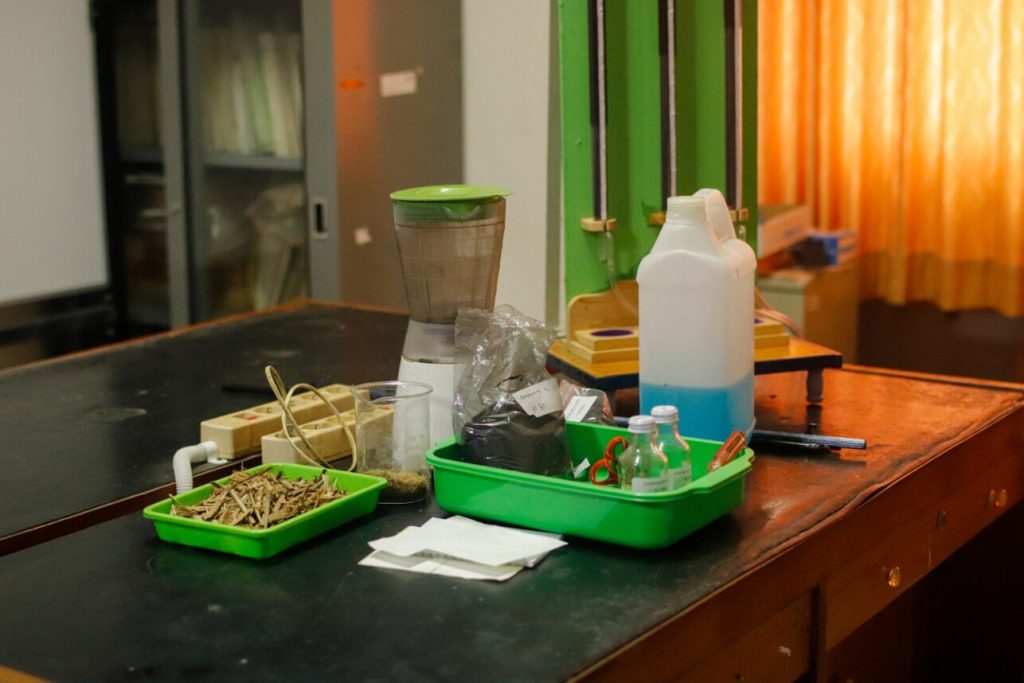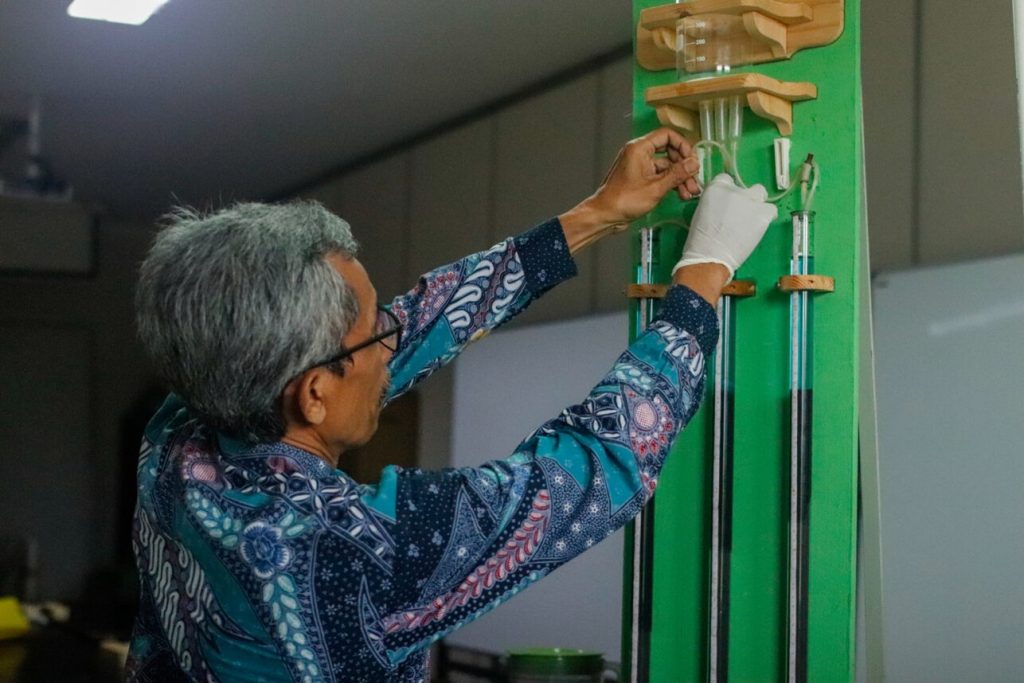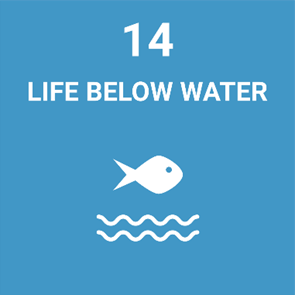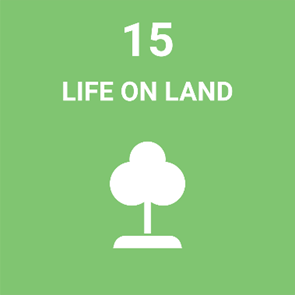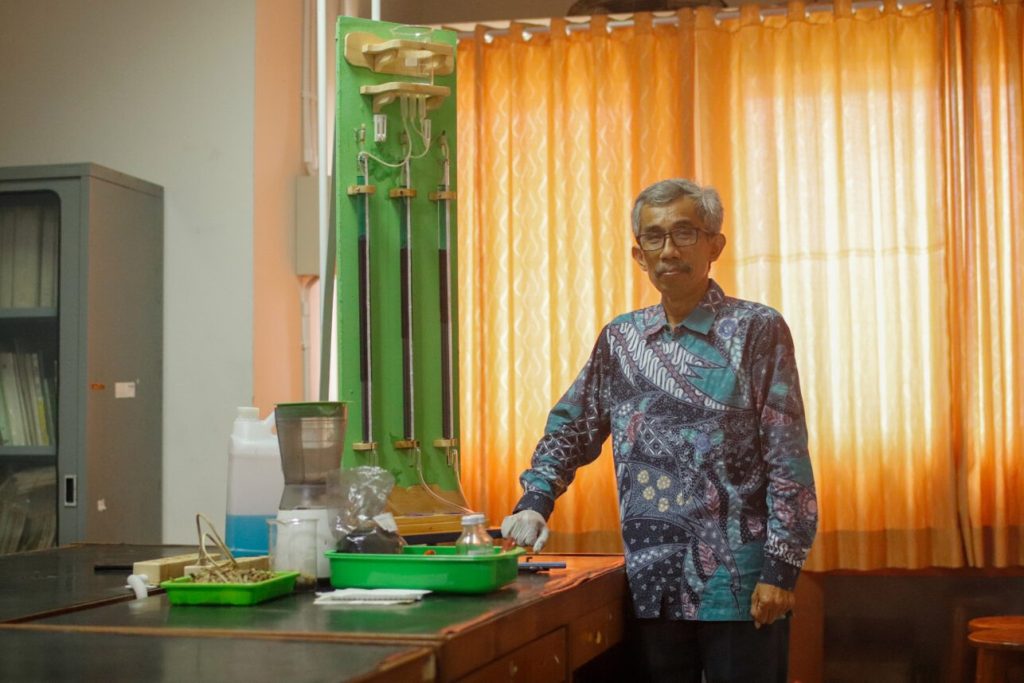
Age is Merely a Number: The Oldest Competency Certification Participant from FMIPA UGM Continues Inspiring Work Through Chemical Waste
Entering the third decade as the Laboratory Education Manager (PLP) for the Elins UGM Study Program, Mardi Wasono had the opportunity to obtain certification as a Young Competent Chemical Safety Expert in Jakarta at the end of 2023. The activity was funded by the Ministry of Education and Culture of the Republic of Indonesia through PT. UNILAB PERDANA with an Assessor from the Industrial Chemical Profession Certification Institute (LSPKI). Participants had to pass administrative selection stages with a portfolio attachment. Subsequently, successful participants underwent 15 days of online mentoring and industrial supervision. Following that, participants traveled to Jakarta for a 5-day training and competency test. In this case, only 20 participants were selected from applicants across Indonesia to go to Jakarta for certification.
Mardi expressed his pride and gratitude for the opportunity, considering his educational background as a graduate of STM in electrical engineering and his not-so-young age. Even with only 3 years and 3 months left dedicating himself to FMIPA UGM, Mardi still felt the desire to innovate in the field of chemical waste management. “I graduated from STM in electrical engineering but luckily could participate in research and training. Everything funded, free of charge. I am not the oldest participant, but I’m considered senior because the others are younger,” he said, displaying the obtained Young Competent Chemical Safety Expert certificate. The enthusiasm and spirit in conducting research for the benefit translate into concrete steps for SDGs impacting innovation (9), marine ecosystems (14), and terrestrial ecosystems (15).
Mardi has been involved in chemical waste research for the past 4-5 years, but his laboratory experience spans over 30 years. The research stemmed from his concerns about the management of chemical waste and its environmental impact. On the other hand, another driving factor was his concern for safety in working, especially in chemical waste management. The goal of the research is to reduce the levels of heavy metal values in chemicals to meet the standards set by the government. This is done to ensure that chemicals do not have a negative impact on the environment, whether for humans, animals, or plants. “Chemical waste is dangerous if not treated and directly disposed of into the environment. Substances like HCl and H2O2 are strong acids. Therefore, they need to be treated first to avoid polluting the environment,” he explained.
Mardi is also grateful for the supportive colleagues in his research, involving professors, researchers, and technicians. Reflecting on his participation in the certification activity at the twilight of his career, Mardi believes it helped him understand his shortcomings and acknowledges that, as a human, he is far from “perfect,” given the many outstanding individuals he has encountered. He also hopes that many staff in other universities will continue to innovate and develop to provide benefits to their surroundings. Although Mardi will retire in 2027, he remains actively engaged in developing his research on chemical waste management. “Currently, I am using agricultural waste (straw) from the Faculty of Veterinary Medicine UGM as an absorbent medium to reduce the levels of heavy metals in the chemical waste generated from practical activities in the basic Elins laboratory. The hope is to achieve the desired target and not harm the environment,” he added.
Keywords: competency certification, FMIPA UGM, laboratory, chemical waste, occupational health and safety (K3), Chemistry
Humas FMIPA UGM | Febriska Noor Fitriana
